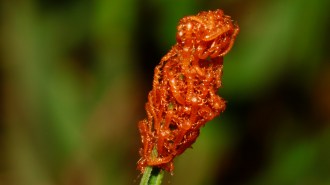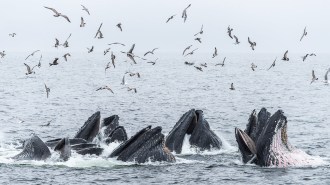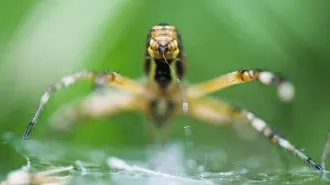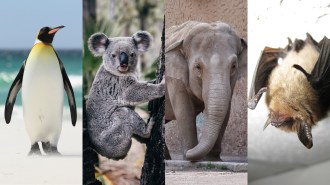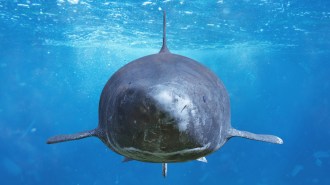Cannibalistic spiders may just be choosy guys
Micaria sociabilis may choose to have older female for lunch, not sex
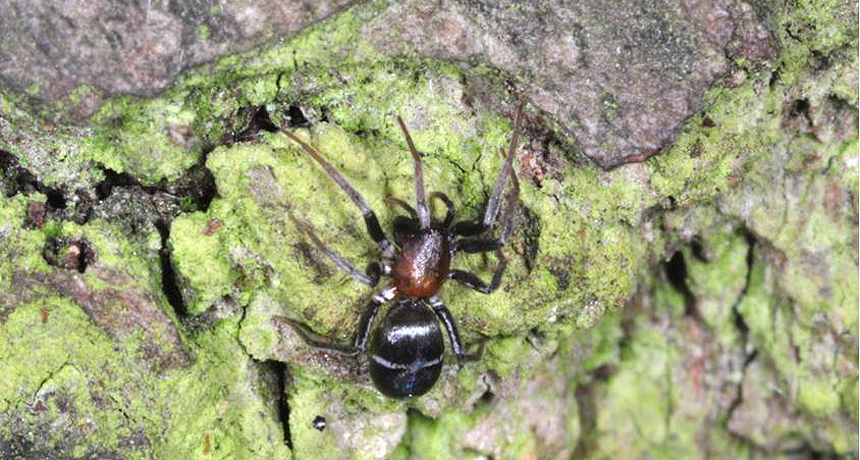
FINE YOUNG CANNIBAL The small spider Micaria sociabilis engages in unusual male-on-female cannibalism. Particularly in July, researchers found, males will often attack and then consume female spiders.
Courtesy of Lenka Sentenská



